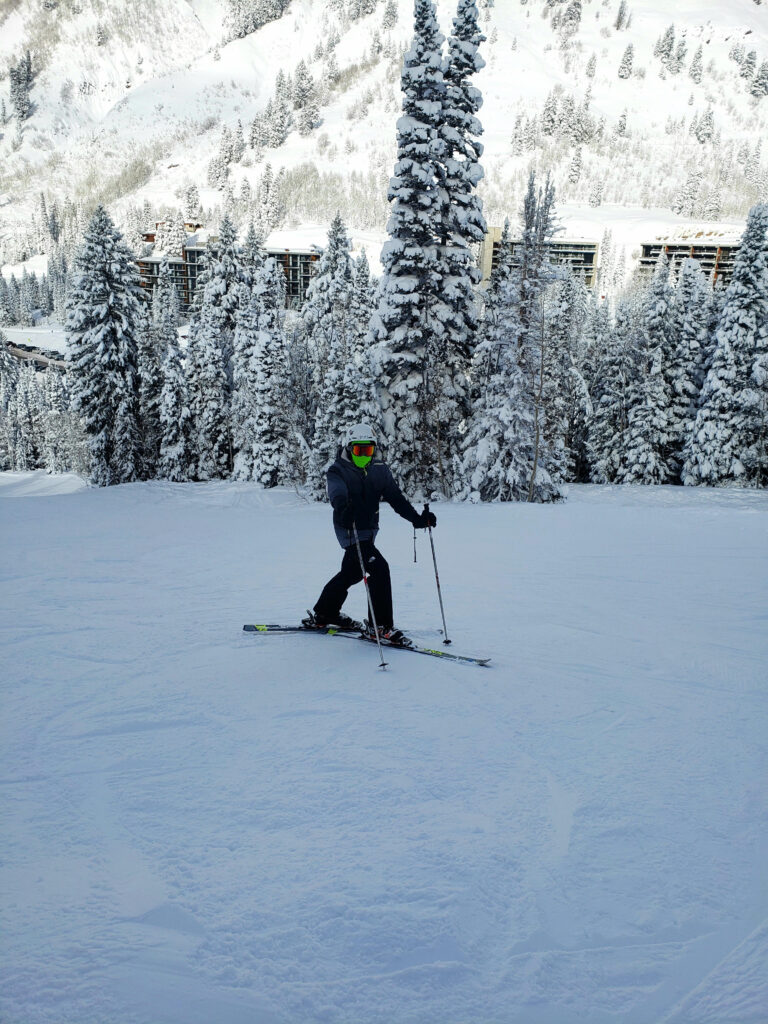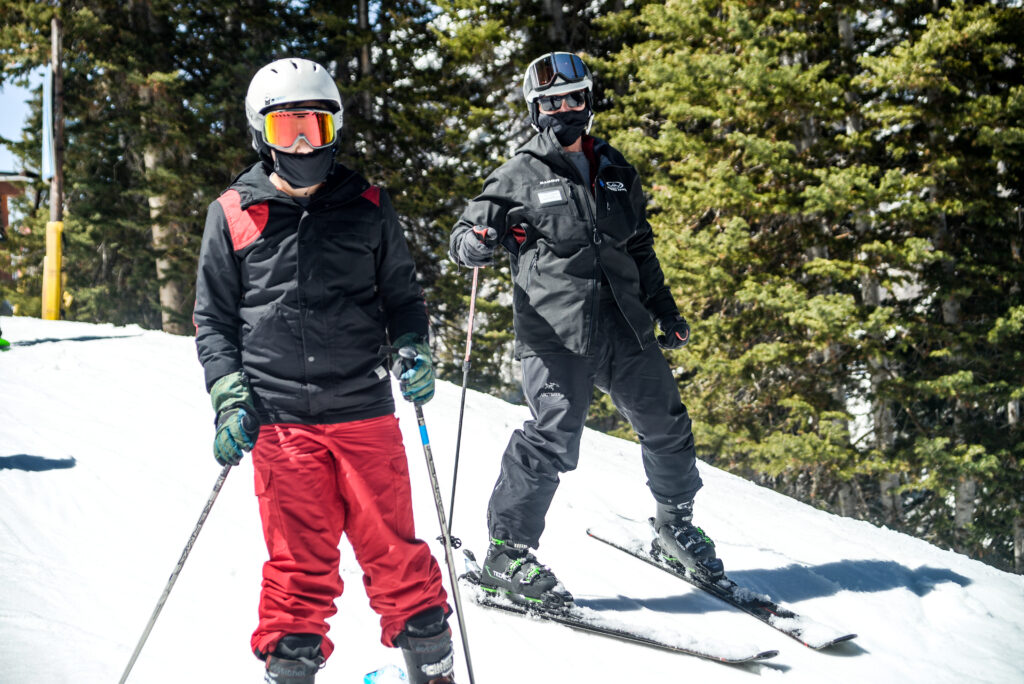TyAnne Crook: Adaptive Sports Changed My Brain Injury Survivor’s Life (& Mine Too)
Parenting a child with a brain injury forces a parent to face pretty much every situation that no parent wants to deal with, ever. Life or death? Sadly, faced it more than once. Public embarrassment? Almost daily. Breaking up with lifelong friends? Too many times. Judgment from friends, family, community, and medical professionals? Yes, yes, yes, and yes. Bullying? Yep. Drugs? That too. Poor behavior? Multiple times a day. Failure in school? It has never ended.
Pretty much brain injury life as a survivor or a parent/caregiver is the suckiest thing on the planet.
We had lived with brain injury for about four or five years. We had just gotten a new neuropsychological assessment. It was bad news. It’s always bad news when you are brain injured. My child was failing multiple subjects in school. The school administration was constantly calling or emailing about this problem or that problem. We had great therapists outside school, but they can’t be with you all day at school. We had an understanding teacher but, in a public school where teachers are overworked, underappreciated, and ridiculously underfunded, she could only do so much.
As a parent, I had tried every traditional neurorehabilitation resource. I was told over and over that this was as good as it would ever get. I was also told I should be grateful because my kid was doing way better than anyone thought was possible. Do you know how crushing it is to be told your child will never progress in school? Yeah, I heard that. And while we needed lots of support, my kid was learning in school. I was told that many activities of daily living were not attainable for my child so independent living was probably not in their future. It took years, but we finally got there too.
Every day was a struggle. Nothing was easy or natural. There was no linear progression that most parents enjoy as their kids progress through life. Every small accomplishment at our house took so much more work than seemed required for our peers. And then one day the worst thing happened. I overheard my child talking about suicide. Well, the word suicide wasn’t used but wanting to die, how to die. My insides went cold.
There had been significant bullying at school. No one liked my kid. My kid was weird. It was just too hard. Why couldn’t my kid do the things everyone else could do? My kid hated everything about life.
I was destroyed.
And then I really thought about it. Was there any joy in this kid’s life? It was all work, therapy, appointments, and struggling for the most basic things. There were no friends, no invitations to classmates’ birthday parties, couldn’t play sports like every other kid. There was no life, no fun. This child’s childhood was not really a childhood. My heart broke.
Something had to change.
I did a little research and found an adaptive recreation program in our area. Wasatch Adaptive Sports. Without having any knowledge of who this organization was or what it did, I took a chance and called. After talking to someone for about twenty minutes of assessing what kind of issues my kid was dealing with, we had an appointment to try snowshoeing. When we arrived, the volunteer was interested in him. The volunteer really talked to him and listened. The volunteer made him laugh. We went back. At the end of one of our sessions, someone asked if we were interested in ski lessons. I wasn’t sure about that. I would have to ask our doctor. I was sure the doctor would say no.
But the doctor didn’t say no right away. Instead, our doctor outlined a list of things that would be required in the lessons. The doctor also made a long list of therapy goals that would need to be accomplished before we could even schedule our first lesson. To me, it seemed like an insurmountable task to get all the things done. But rather than be discouraged, this seemed to motivate my kid. Maybe the prospect of doing something that looked fun and cool would propel him to achieve something more. I did not tell him what he was up against. He just quietly went to work trying to check one thing off the list that the doctor gave us at a time.
It did not take nearly as long as I thought it would and the whole list was done. I called Wasatch Adaptive Sports and asked about ski lessons. To be 100% honest, I was nervous. There was no way this would help. They would find that he could not do it. He would be defeated again and with his hopes dashed, he would be in an even worse place than we started but I made an appointment for the lesson. The person on the phone gave me some directions on how to be prepared. We showed up on the appointed day and time.
Progress was slow but it was steady. We went back the next winter. Many of the volunteers remembered him and asked about his summer, how school was going, and his friends. This was one place where he could be completely honest. No one judged him. They listened when he talked about not having friends. Every volunteer met him where he was and helped him define what he wanted, and goals to work towards. The next season money was tight. Job loss. Someone reached out and told me about a scholarship. He got to ski again. He looked forward to these lessons more than anything else and the scholarship felt like a lifeline. He made more progress, set new goals, and was navigating the ski resort surprisingly well for someone who has limited memory and spatial skills.
Wasatch Adaptive Sports and its incredible volunteers ensured that he experienced success. Success on the mountain gave him the confidence to try another sport and talk to some kids when we moved to a new school. It didn’t all turn out perfectly, but all these things were new and for the first time, he was excited about things. He started getting motivated to do better in school because he knew his ski teachers would ask him about school. Were ski lessons the only reason he started doing more and better? Probably not. Moving to a new neighborhood and school helped. Finding some friends definitely helped. But was finding that adaptive program an important catalyst? Yes.
Here are a few things I learned. People matter. If you can find a place like Wasatch Adaptive Sports that treat people like they matter, people grow. Recreating and socializing outside in the fresh air is healing. Everyone, regardless of ability status, can enjoy the outdoors. Physical activity is good for you no matter what your body looks like or what it can do. Challenges help us grow. You cannot do it on your own as a parent. Sometimes you need a village to reach your child. I think I might have known these things, but I didn’t really know them until this adaptive program helped me experience them. Wasatch Adaptive Sports did not see the limitations in my kid. They saw the person who needed healing and belonging. I think they saw that in me too.
I will forever be grateful that I stumbled upon Wasatch Adaptive Sports. There are programs and opportunities out there for all types of ability statuses. If you can’t find something for your needs, maybe that’s your cue to start one. It’ll change your life.




